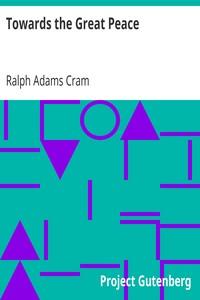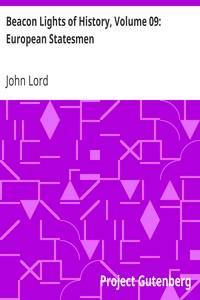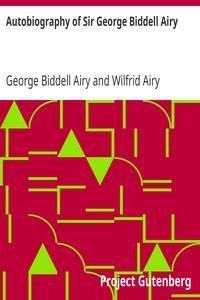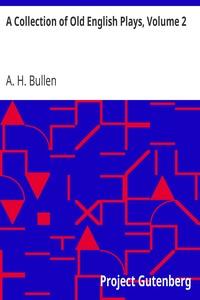|
|
Read this ebook for free! No credit card needed, absolutely nothing to pay.Words: 70907 in 11 pages
This is an ebook sharing website. You can read the uploaded ebooks for free here. No credit cards needed, nothing to pay. If you want to own a digital copy of the ebook, or want to read offline with your favorite ebook-reader, then you can choose to buy and download the ebook.

: Towards the Great Peace by Cram Ralph Adams - Sociology; Social problems; Civilization World War I@FreeBooksTue 06 Jun, 2023 LECTURE INTRODUCTION TOWARDS THE GREAT PEACE A WORLD AT THE CROSSROADS For two thousand years Christianity has been an operative force in the world; for more than a century democracy has been the controlling influence in the public affairs of Europe and the Americas; for two generations education, free, general and comprehensive, has been the rule in the West. Wealth incomparable, scientific achievements unexampled in their number and magnitude, facile means of swift intercommunication between peoples, have all worked together towards an earthly realization of the early nineteenth-century dream of proximate and unescapable millennium. With the opening of the second decade of the twentieth century it seemed that the stage was set for the last act in an unquestioned evolutionary drama. Man was master of all things, and the failures of the past were obliterated by the glory of the imminent event. What of the world since the Peace of Versailles? Hatred, suspicion, selfishness are the dominant notes. The nations of Europe are bankrupt financially, and the governments of the world are bankrupt politically. Society is dissolving into classes and factions, either at open war or manoeuvering for position, awaiting the favourable moment. Law and order are mocked at, philosophy and religion disregarded, and of all the varied objects of human veneration so loudly acclaimed and loftily exalted by the generation that preceded the war, not one remains to command a wide allegiance. One might put it in a sentence and say that everyone is dissatisfied with everything, and is showing his feelings after varied but disquieting fashion. It is a condition of unstable equilibrium constantly tending by its very nature to a point where dissolution is apparently inevitable. It is no part of my task to elaborate this thesis, and still less to magnify its perils. Enough has been said and written on this subject during the last two years; more than enough, perhaps, and in any case no thinking person is unaware of the conditions that exist, whatever may be his estimate of their significance, his interpenetration of their tendency. I have set myself the task of trying to suggest some constructive measures that we may employ in laying the foundations for the immediate future; they may be wrong in whole or in part, but at least my object and motive are not recrimination or invective, but regeneration. Nevertheless, as a foundation the case must be stated, and as a necessary preparation to any work that looks forward we must have at least a working hypothesis as to how the conditions that need redemption were brought about. I state the case thus, therefore: That human society, even humanity itself, is now in a state of flux that at any moment may change into a chaos comparable only with that which came with the fall of classical civilization and from which five centuries were necessary for the process of recovery. Christianity, democracy, science, education, wealth, and the cumulative inheritance of a thousand years, have not preserved us from the vain repetition of history. How has this been possible, what has been the sequence of events that has brought us to this pass? It is of course the result of the interaction of certain physical, material facts and certain spiritual forces. Out of these spiritual energies come events, phenomena that manifest themselves in political, social, ecclesiastical transactions and institutions; in wars, migrations and the reshaping of states; in codes of law, the organization of society, the development of art, literature and science. In their turn all these concrete products work on the minds and souls of men, modifying old spiritual impulses either by exaltation or degradation, bringing new ones into play; and again these react on the material fabric of human life, causing new combinations, unloosing new forces, that in their turn play their part in the eternal process of building, unbuilding and rebuilding our unstable and fluctuant world. Underlying all the varied material forms of ancient society, as this developed around the shores of the Mediterranean, was the great fact of slavery: Persia, Assyria, Babylonia, Egypt, Greece, Rome, all were small, sometimes very small, minorities of highly developed, highly privileged individuals existing on a great sub-stratum of slaves. All the vast contributions of antiquity in government and law, in science, letters, art and philosophy, all the building of the culture and civilization that still remain the foundation stones of human society, was the work of the few free subsisting on the many un-free. But freedom, liberty, is an attribute of the soul and it may exist even when the body is in bondage. The slaves of antiquity were free neither in body nor in soul, but with the coming of Christianity all this was changed, for it is one of the great glories of the Christian religion that it gave freedom to the soul even before the Church could give freedom to the body of the slave. After the fall of the Roman Empire, and with the infiltration of the free races of the North, slavery gradually disappeared, and between the years 1000 and 1500 a very real liberty existed as the product of Christianity and under its protection. Society was hierarchical: from the serf up through the peasant, the guildsman, the burgher, the knighthood, the nobles, to the King, and so to the Emperor, there was a regular succession of graduations, but the lines of demarcation were fluid and easily passed, and as through the Church, the schools and the cloister there was an open road for the son of a peasant to achieve the Papacy, so through the guilds, chivalry, war and the court, the layman, if he possessed ability, might from an humble beginning travel far. An epoch of real liberty, of body, soul and mind, and the more real in that limits, differences and degrees were recognized, accepted and enforced. This condition existed roughly for five centuries in its swift rise, its long dominion and its slow decline, that is to say, from 1000 A.D. to 1500 A.D. There was still the traditional aristocracy, now feudal rather than patriarchal or military; there was still a servile class, now reduced to a small minority. In between was the great body of men of a degree of character, ability and intelligence, and with a recognized status, the like of which had never been seen before. It was not a bourgeoisie, for it was made up of producers,--agricultural, artisan, craft, art, mechanic; a great free society, the proudest product of Christian civilization. With the sixteenth century began a process of change that was to overturn all this and bring in something radically different. The Renaissance and the Reformation worked in a sense together to build up their own expressive form of society, and when this process had been completed we find still an aristocracy, though rapidly changing in the quality of its personnel and in the sense of its relationship to the rest of society; a servile class, the proletariat, enormously increased in proportion to the other social components; and two new classes, one the bourgeoisie, essentially non-producers and subsisting largely either on trade, usury or management, and the pauper, a phase of life hitherto little known under the Christian regime. The great body of free citizens that had made up the majority of society during the preceding epoch, the small land-holders, citizens, craftsmen and artists of fifty different sorts, has begun rapidly to dissolve, has almost vanished by the middle of the seventeenth century, and in another hundred years has practically disappeared. What had become of them, of this great bulk of the population of western Europe that, with the feudal aristocracy, the knighthood and the monks had made Mediaevalism? Some had degenerated into bourgeois traders, managers and financeers, but the great majority had been crushed down and down in the mass of submerged proletariat, losing liberty, degenerating in character, becoming more and more servile in status and wretched in estate, so forming a huge, inarticulate, dully ebullient mass, cut off from society, cut off almost from life itself. Free books android app tbrJar TBR JAR Read Free books online gutenberg More posts by @FreeBooks
: Beacon Lights of History Volume 10: European Leaders by Lord John - History Children's History@FreeBooksTue 06 Jun, 2023

: Beacon Lights of History Volume 09: European Statesmen by Lord John - History Children's History@FreeBooksTue 06 Jun, 2023
|
Terms of Use Stock Market News! © gutenberg.org.in2025 All Rights reserved.






